Provosts
Provosts
The Big Ten Academic Alliance is governed by the Provosts of the member universities who act as a “board of the whole” to lead, guide, and fund the enterprise.
- Chair - Kathleen Hagerty - Northwestern University
- John Coleman - University of Illinois
- Rahul Shrivastav - Indiana University
- Kevin Kregel - University of Iowa
- Jennifer King Rice - University of Maryland
- Laurie McCauley - University of Michigan
- Laura Lee McIntyre - Michigan State University
- Gretchen Ritter - University of Minnesota
- Mark Button - University of Nebraska-Lincoln
- Ravi Bellamkonda - Ohio State University
- Christopher Long - University of Oregon
- Fotis Sotiropoulos - Pennsylvania State University
- Patrick Wolfe - Purdue University
- Francine Conway - Rutgers University-New Brunswick
- Darnell Hunt - University of California Los Angeles
- Andrew T. Guzman - University of Southern California
- Tricia R. Serio - University of Washington
- John Zumbrunnen - University of Wisconsin-Madison
- Katherine Baicker - University of Chicago (Affiliate)
Chair - Kathleen Hagerty - Northwestern University
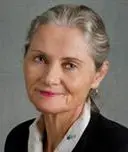 Kathleen M. Hagerty was appointed as Provost at Northwestern University on September 1, 2020. She completed her bachelor’s in mathematics, masters of business administration and masters of science in operations research at the University of California, Berkeley. She earned her Ph.D. in economics at Stanford University.
Kathleen M. Hagerty was appointed as Provost at Northwestern University on September 1, 2020. She completed her bachelor’s in mathematics, masters of business administration and masters of science in operations research at the University of California, Berkeley. She earned her Ph.D. in economics at Stanford University.
She joined Kellogg School of Management more than 30 years ago and holds the First Chicago Professorship in Finance. Dr. Hagerty has held numerous leadership positions within Kellogg, including serving two terms as senior associate dean of faculty and research, two terms as chair of the finance department and two years as faculty director of Kellogg’s Ph.D. programs.
Her work has studied the micro-structure of securities markets, disclosure regulation, insider trading regulation and the effectiveness of self-regulatory organizations. Her research has appeared in journals such asThe Quarterly Journal of Economics, Journal of Political Economy and The Journal of Finance. She received a Bradley Foundation Research Fellowship and received the D.P. Jacobs Prize for the Most Significant Paper in the Journal of Financial Intermediation. She has also been a member of the editorial board of the Review of Financial Studies and the Journal of Financial Markets.
John Coleman - University of Illinois
 John Coleman was appointed Provost and Executive Vice Chancellor for Academic Affairs at the University of Illinois at Urbana-Champaign in July 2023. He earned a Ph.D. in political science from the Massachusetts Institute of Technology and a B.A. summa cum laude in government and history from Clark University.
John Coleman was appointed Provost and Executive Vice Chancellor for Academic Affairs at the University of Illinois at Urbana-Champaign in July 2023. He earned a Ph.D. in political science from the Massachusetts Institute of Technology and a B.A. summa cum laude in government and history from Clark University.
Prior to being named Provost, Coleman served as dean of the College of Liberal Arts and a professor of political science at the University of Minnesota since 2014. He was previously chair of the Political Science Department, a Lyons Family Faculty Fellow, and the Glenn B. and Cleone Orr Hawkins Professor at the University of Wisconsin-Madison, where he was on the faculty for over 20 years and received the Chancellor’s Distinguished Teaching Award. He has also held a faculty position at the University of Texas at Austin and was a research associate and instructor at Harvard Business School.
A nationally recognized scholar, he is the author or editor of seven books on American politics and government and numerous articles in major journals and edited volumes. His research interests include political parties, elections and voting, legislative-executive relations, divided government, campaign finance, American political development, and the intersection of politics and economics. He served as president of the American Political Science Association’s section on political organizations and parties.
Rahul Shrivastav - Indiana University
 Rahul Shrivastav was appointed Executive Vice President and Provost of Indiana University on February 15, 2022. He received his doctoral degree in speech and hearing sciences, with a minor in cognitive sciences, from Indiana University. His undergraduate and graduate training are in speech and hearing sciences from the University of Mysore, India.
Rahul Shrivastav was appointed Executive Vice President and Provost of Indiana University on February 15, 2022. He received his doctoral degree in speech and hearing sciences, with a minor in cognitive sciences, from Indiana University. His undergraduate and graduate training are in speech and hearing sciences from the University of Mysore, India.
In addition to his executive leadership role, Dr. Shrivastav will also have a faculty appointment in the Department of Speech, Language and Hearing Sciences in the College of Arts and Sciences. Prior to his appointment at Indiana University, he served as vice president for instruction at the University of Georgia. Before joining the University of Georgia, Dr. Shrivastav served as professor and chair of the Department of Communicative Sciences and Disorders and directed the Voice and Speech Laboratory at Michigan State University.
Dr. Shrivastav also served on the faculty at the University of Florida and directed its Voice Acoustics and Perception Laboratory and was a research scientist at the Malcom Randal VA Medical Center, where he was a part of the Oral-Motor Research Group within the Brain Rehabilitation Research Center. In 2007, he co-founded the start-up company Audigence, Inc. to commercialize some of the intellectual property developed by this research group. He has served as chief scientist and on the scientific advisory board for Audigence.
He has received numerous awards and honors during his career, including the Colonel Allan R. and Margaret G. Crow Term Professorship at the University of Florida. In 2013, he was named a Fellow of the American Speech-Language-Hearing Association. The National Academy of Inventors elected him as a Fellow in 2020.
His research is focused on speech perception abilities and speech production deficits in people with various diseases. This work helps design better health care and commercial applications, measurement systems for treatment outcomes, improved hearing aids, cochlear implants and mobile phones, and assessment and screening tools for a variety of diseases. He also serves several national and international professional organizations in various scientific, administrative, and executive roles.
Kevin Kregel - University of Iowa
 Kevin Kregel was named Executive Vice President and Provost in February 2021. He earned a bachelor’s degree and doctorate (physiology & biophysics) from the University of Iowa, and subsequently performed an NIH postdoctoral fellowship at the University of Arizona. In 1993, Dr. Kregel joined the faculty at the University of Iowa, and currently holds the rank of full professor.
Kevin Kregel was named Executive Vice President and Provost in February 2021. He earned a bachelor’s degree and doctorate (physiology & biophysics) from the University of Iowa, and subsequently performed an NIH postdoctoral fellowship at the University of Arizona. In 1993, Dr. Kregel joined the faculty at the University of Iowa, and currently holds the rank of full professor.
He was department executive officer in the Department of Health & Human Physiology prior to his appointment as Associate Provost. He has been serving as Interim Executive Vice President and Senior Associate Provost for Faculty since July 2019.
Dr. Kregel’s activities at the University of Iowa have included service on numerous collegiate and university committees, along with participation on steering committees for two campus-wide cluster hire initiatives. His extramurally funded research laboratory at the University of Iowa has focused on physiological adjustments to exercise, aging, and environmental challenges. He has also been very active in leadership positions at the national level, including service as the chair of committees addressing science policy issues for the Federation of American Societies of Experimental Biology and the American Physiological Society.
Jennifer King Rice - University of Maryland
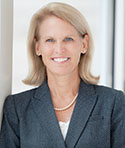 Jennifer King Rice was named Senior Vice President and Provost of the University of Maryland effective August 11, 2021. Dr. Rice earned her Ph.D. and M.S. degrees in Education Administration and Social Foundations from Cornell University. She received her bachelors in Mathematics and English from Marquette University, where she was recently honored with the Professional Achievement Award from the Marquette University Klingler College of Arts and Sciences.
Jennifer King Rice was named Senior Vice President and Provost of the University of Maryland effective August 11, 2021. Dr. Rice earned her Ph.D. and M.S. degrees in Education Administration and Social Foundations from Cornell University. She received her bachelors in Mathematics and English from Marquette University, where she was recently honored with the Professional Achievement Award from the Marquette University Klingler College of Arts and Sciences.
For over 25 years, Dr. Rice has served on the faculty and in college leadership roles at the University of Maryland. Prior to joining the faculty at Maryland, she was a researcher at Mathematica Policy Research. Most recently, Dr. Rice served as the dean of the University of Maryland’s College of Education and professor of education policy. In this role, Rice has focused her efforts to align educational resources with key initiatives to advance excellence, equity, and social justice in preschool through graduate school. Upon becoming dean, she led the College of Education community through an inclusive strategic planning process, which has resulted in new and innovative initiatives to promote the College’s shared values, vision, and goals. Her emphasis on college-level research infrastructure, enhancements in instructional programming and diversity, equity and inclusion have propelled the college forward in reputation and rankings during her tenure.
As a national expert in education finance and policy, Rice regularly consults with policy organizations and agencies at the state and federal levels. She has been a National Academy of Education/Spencer Foundation Postdoctoral Fellow and a visiting fellow at the Urban Institute. She is currently a fellow of the National Education Policy Center and served as president of the Association of Education Finance and Policy. She sits on two charter school boards, is a University System of Maryland representative on the Maryland State Teacher Certification Advisory Council, and recently co-chaired the Association of American Universities Annual Deans’ meeting. Dr. Rice also served as co-chair of the Maryland Education Deans and Directors Council.
As a University of Maryland Distinguished Scholar-Teacher awardee, Dr. Rice has published numerous articles and book chapters. Her authored and edited books include Performance-Based Pay for Educators: Assessing the Evidence, Fiscal Policy in Urban Education, and Teacher Quality: Understanding the Effectiveness of Teacher Attributes, winner of the American Association of Colleges for Teacher Education book award. She also served on the editorial boards of American Educational Research Journal and Educational Evaluation and Policy Analysis, and recently completed a term on the editorial board for Education Finance and Policy.
Laurie McCauley - University of Michigan

Dr. Laurie McCauley is provost and executive vice president for academic affairs at the University of Michigan, overseeing the university's academic and budgetary affairs. The deans of the 19 schools and colleges report to her, as do the vice provosts with portfolios covering academic and budgetary affairs; academic and faculty affairs; academic affairs-graduate studies; academic innovation; engaged learning; sustainability and climate action; undergraduate education; arts and humanities; access and opportunity; and enrollment management.
During her tenure, the Office of the Provost has created new focus areas as identified by faculty groups and the strategic visioning process: the inaugural vice provost for sustainability and climate action is responsible for elevating and coordinating the university's approach to sustainability education and research, and the university's first vice provost for undergraduate education is the primary role responsible for coordinating the Student Success Initiative, which was created as a result of the Initiative Planning Group on Student Academic Success charged by Provost McCauley.
In partnership with the other executive vice presidents, Provost McCauley leads U-M's Campus Planning initiative, as well as the university's strategic visioning process.
An active researcher supported by the National Institutes of Health for more than 25 years, Dr. McCauley's work focuses on parathyroid hormone anabolic actions in bone, immune cell functions in bone, and prostate cancer skeletal metastasis. This mechanistic and translational research contributes to regenerative medicine and the development of treatments for inflammatory mediated bone loss.
Provost McCauley has held visiting appointments at the Institut de Genetique et de Biologie Moleculaire et Cellulaire, the École Normale Supérieure de Lyon, and the Center for Experimental Therapeutics and Reperfusion Injury, Brigham and Women's Hospital, Harvard Medical School. Among her many recognitions, she has been awarded a distinguished scientist award (International Association for Dental Research), a distinguished alumna award (The Ohio State University), and the Norton M. Ross Award for Excellence in Clinical Research (American Dental Association). She is a fellow of the American Association for the Advancement of Science and a member of the National Academy of Medicine, where she served as Section Chair.
Provost McCauley has been a champion for inclusion promoting multicultural ideals, receiving the Ida Gray award for her outstanding efforts in this area.
She is also a passionate advocate for the health and well-being of faculty, students, and staff and serves as a leader in the university's Well-Being Collective. Since taking on the role of provost, she has committed to creating a more accessible and inclusive environment for people with disabilities at the university, as well as integrating disability awareness into more educational contexts across campus.
Prior to her appointment as provost, she served as the dean of the School of Dentistry. As dean, she actively worked to reduce student debt, and oversaw a $142 million expansion and renovation of the dental school's clinical and educational facilities. Dr. McCauley is the William K. and Mary Anne Najjar Professor of Periodontics in the School of Dentistry and professor of pathology in the Medical School.
Provost McCauley joined U-M as an assistant professor of dentistry in 1992. She holds four degrees from The Ohio State University: Bachelor of Science in education, Doctor of Dental Surgery, Master of Science in dentistry, and PhD in veterinary pathology.
Laura Lee McIntyre - Michigan State University
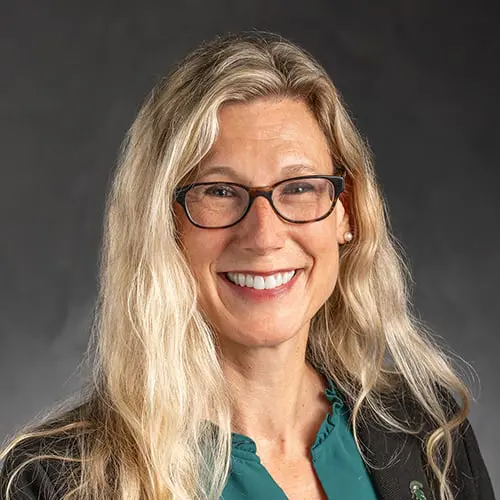 Laura Lee McIntyre, Ph.D. is a psychologist, educator, and higher education leader who assumed the role of Provost and Executive Vice President for Academic Affairs at Michigan State University on August 4, 2025. McIntyre’s faculty home is in the Department of Counseling, Educational Psychology, and Special Education where she is an MSU Research Foundation Professor. Prior to her appointment at MSU, she served as Dean of the College of Education at the University of Oregon.
Laura Lee McIntyre, Ph.D. is a psychologist, educator, and higher education leader who assumed the role of Provost and Executive Vice President for Academic Affairs at Michigan State University on August 4, 2025. McIntyre’s faculty home is in the Department of Counseling, Educational Psychology, and Special Education where she is an MSU Research Foundation Professor. Prior to her appointment at MSU, she served as Dean of the College of Education at the University of Oregon.
McIntyre has extensive leadership experience in higher education and has served as dean, department chair, director of graduate studies, research institute director, member of the faculty senate, and served two terms on the University of Oregon’s Board of Trustees. She is deeply committed to shared governance, academic freedom, and cultivating an environment where students, faculty, staff, and community can thrive. McIntyre is a fierce supporter of public higher education and is committed to building trust with constituents across campus and in the community to accelerate the impact of higher education to promote public good. Her leadership is rooted in collaboration, relationship-building, and honest and transparent communication. Integrity, honesty, inclusion, and joy are some of the values that McIntyre brings to her leadership.
Laura Lee McIntyre’s research focuses on children’s mental and behavioral health, special education, and prevention and intervention to promote child and family well-being in vulnerable and underserved populations. Her work focuses on systems of care, including families, schools, and healthcare. McIntyre’s current NIH-funded research focuses on the long-term behavioral health outcomes of youth with and without disabilities following the school closures during the COVID-19 pandemic.
McIntyre has more than 120 publications and 270 scientific presentations. Her research has been supported by more than $25 million in grants from federal agencies, including NIH, IES, OSEP, and HHS. She is the recipient of several awards for her research and teaching, including early and mid-career research awards from the American Psychological Association and the American Association for Intellectual and Developmental Disabilities. One of her greatest joys is working with students and mentees. McIntyre is the recipient of the Golden Apple Teaching award for undergraduate instruction and received a community service award from the Families for Effective Autism Treatment.
McIntyre has served as nationally elected president for two professional organizations, including the American Psychological Association’s Division on Intellectual and Developmental Disabilities and the American Association for Intellectual and Developmental Disabilities. She has held key editorial positions for several flagship journals in her field.
Laura Lee McIntyre received a B.A. in Developmental Psychology from La Sierra University, a master’s degree in Special Education from University of California-Riverside, and a Ph.D. in School Psychology from the University of California-Riverside. She has held faculty positions at Syracuse University, SUNY Upstate Medical University, and the University of Oregon.
Laura Lee and her husband Bill have two children, Liam and Ella, and love the outdoors, a good book, traveling the world (but then returning to the comforts of home). Laura Lee and family are thrilled to be joining the Spartan community!
Gretchen Ritter - University of Minnesota
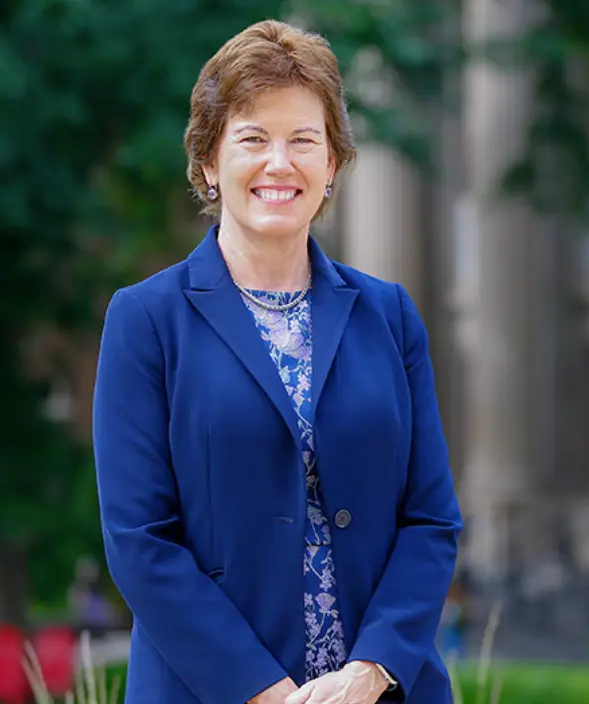 Gretchen Ritter was appointed as the University of Minnesota’s executive vice president and provost July 31, 2025, assuming the roles of chief academic officer for the University’s five campuses and provost for the Twin Cities campus.
Gretchen Ritter was appointed as the University of Minnesota’s executive vice president and provost July 31, 2025, assuming the roles of chief academic officer for the University’s five campuses and provost for the Twin Cities campus.
As executive vice president, Ritter is responsible for faculty promotion and tenure approval, the development, revision, and approval of academic programs, and managing their operational intricacies to bolster faculty, student, and staff success. She also plays a collaborative leadership role in the University’s academic planning and budgeting process, use of educational technology, and capital planning.
As provost, Ritter leads the deans of the colleges, schools, and academic units of the Twin Cities campus and is responsible for advancing its academic mission. She will guide the implementation of components of the systemwide strategic plan and participate in a long-established collaborative and inclusive culture to promote the recruitment and retention of faculty, students, and staff.
Ritter joins the University from Syracuse University, where she was the inaugural vice president for civic engagement and education. In this role, Ritter collaborated with academic programs and units to advance appreciation for civic engagement and community service while facilitating campus-wide programming to foster civil dialogue and free expression across viewpoints. During this time, she was a professor of political science in the Maxwell School of Citizenship and Public Affairs and a faculty affiliate with the Program for Advancement of Research on Conflict and Collaboration.
She served as the vice chancellor, provost, and chief academic officer at Syracuse University from 2021 to 2024, where she navigated a world health crisis, distance learning, and calls for social change. Of the many accomplishments during her leadership, Ritter implemented a new academic strategic plan, hired two of the largest faculty cohorts in the university’s history, and guided the expansion of their College of Engineering and Computer Science.
Prior to her time at Syracuse University, Ritter was the executive dean and vice provost of the College of Arts and Sciences at The Ohio State University, the dean of the College of Arts and Sciences at Cornell University, and the vice provost of undergraduate education and faculty governance at the University of Texas at Austin, accompanied by numerous faculty appointments.
An expert in both women’s constitutional rights and democracy and citizenship in American politics, Ritter’s extensive research background is an asset to the University for navigating contemporary issues of higher education. She holds a bachelor's degree in government from Cornell University and a doctorate in political science from Massachusetts Institute of Technology.
Mark Button - University of Nebraska-Lincoln
 Mark E. Button was appointed Interim Executive Vice Chancellor and Chief Academic Officer at the University of Nebraska-Lincoln on January 1, 2025. Prior to this role, he served as Dean of UNL’s College of Arts and Sciences beginning in July 2019. He was previously Chair of the Department of Political Science at the University of Utah from 2014-2019, and was on the faculty at the University of Utah for 18 years.
Mark E. Button was appointed Interim Executive Vice Chancellor and Chief Academic Officer at the University of Nebraska-Lincoln on January 1, 2025. Prior to this role, he served as Dean of UNL’s College of Arts and Sciences beginning in July 2019. He was previously Chair of the Department of Political Science at the University of Utah from 2014-2019, and was on the faculty at the University of Utah for 18 years.
A first-generation college graduate, he earned a Doctorate in Political Science from Rutgers University-New Brunswick, with concentrations in political theory and American politics. He completed a Bachelor of Arts degree in political science, with a minor in peace studies, at the University of Oregon.
Button’s scholarship, teaching, and student mentoring have been recognized with external and internal awards. The guiding purpose of his service in higher education is to facilitate a life of learning and discovery for all who seek it.
He is the author of Political Vices (Oxford University Press, 2016) and Contract, Culture, and Citizenship: Transformative Liberalism from Hobbes to Rawls (Penn State University Press, 2008). His articles on political ethics, deliberative democracy, and the history of moral and political thought have appeared in Perspectives on Politics; Political Studies; Political Research Quarterly; Political Theory; Social Theory and Practice; Polity; Law, Culture, and the Humanities; and The Encyclopedia of Political Thought. He is co-editor and contributing author to interdisciplinary volume: Suicide and Social Justice: New Perspectives on the Politics of Suicide and Suicide Prevention (Routledge Press, 2020).
Ravi Bellamkonda - Ohio State University
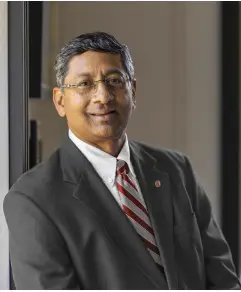
Ravi V. Bellamkonda serves as the executive vice president and provost of The Ohio State University. As chief academic officer, he oversees the institution’s academic enterprise, which includes 15 colleges, four regional campuses, and more than 8,600 faculty who serve nearly 67,000 students. He also leads the Office of Academic Affairs, which drives Ohio State’s academic excellence and supports the students, faculty, and communities the university serves. This collective effort fosters Ohio State’s reputation as one of the world’s preeminent public research universities and the flagship land-grant institution of Ohio.
An accomplished scholar, entrepreneur, and administrator, Dr. Bellamkonda joined Ohio State after serving as the provost and executive vice president for academic affairs at Emory University. At Emory, he focused on strengthening the university’s schools, academic operations, and faculty culture. He also launched initiatives centered on student experience, arts and humanistic inquiry, and artificial intelligence in service to humanity.
Before becoming Emory’s provost, Dr. Bellamkonda served as the Vinik Dean at Duke University’s Pratt School of Engineering. Previously, he was the Wallace H. Coulter Professor and chair of the Department of Biomedical Engineering at Georgia Institute of Technology and Emory University.
A bioengineer and neuroscientist, Dr. Bellamkonda completed his PhD at Brown University and a postdoctoral fellowship at the Massachusetts Institute of Technology. He has won numerous awards from professional societies in biomedical engineering and biomaterials and served as president of the American Institute for Medical and Biological Engineering, the preeminent policy advocacy group in his field. In 2021, Dr. Bellamkonda received a National Institutes for Health Director’s Transformative Research Award for his work designing a “tractor beam” to treat pediatric brain tumors, supported by the National Cancer Institute.
Provost Bellamkonda and his wife, Dr. Lalita Kaligotla, are the proud parents of two grown children.
Christopher Long - University of Oregon
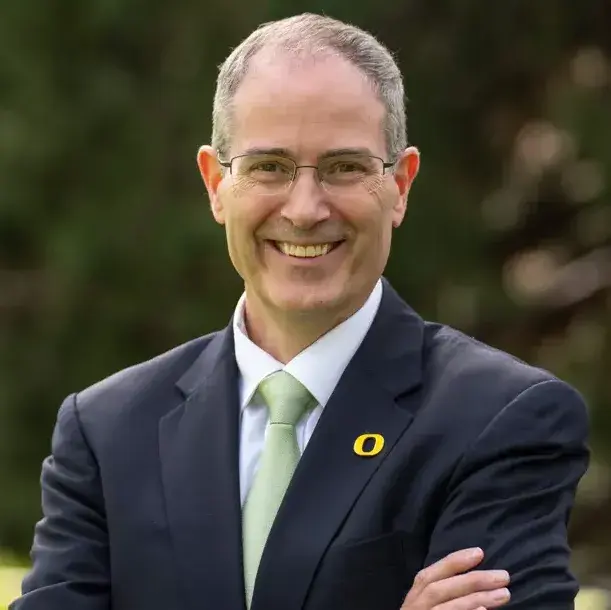
Christopher P. Long is the provost and senior vice president at the University of Oregon. Recognized for values-enacted leadership, Provost Long is committed to the transformative power of liberal arts research and teaching by enriching graduate and undergraduate education, recruiting and retaining world-class faculty, and creating new opportunities for leading-edge research.
Provost Long joined the university in June 2024. He has more than 20 years of academic leadership experience from the public research universities of Michigan State University and Penn State. He identifies integrity, trust, equity, collaboration, and excellence as the core values that inform his leadership as the chief academic officer at the University of Oregon. As provost, he is responsible for the programs, policies, and priorities that shape the university's academic life. Working collaboratively with leadership across the university, the Office of the Provost leads efforts to ensure that students, staff, and faculty can flourish in an environment that cultivates excellence through diversity, belonging, responsible inquiry, trust, and dialogue.
The provost reports to the president of the university and, in his absence, acts on behalf of the president. As chief academic officer, the provost serves as the spokesperson for academic matters at the university.
Provost Long has more than $7 million of funded research projects, including the Mellon funded Less Commonly Taught and Indigenous Languages Partnership with the Big 10 Academic Alliance, a participatory research initiative and teaching framework developed in reciprocal partnership with Indigenous communities and institutions across the Big 10; the Public Philosophy Journal, an innovative online publication for accessible scholarship that deepens our understanding of publicly relevant issues; and HuMetricsHSS, a values-enacted initiative committed to transforming higher education by aligning indicators of academic excellence with core personal and institutional values.
An expert in both ancient Greek and contemporary continental philosophy, Provost Long’s extensive publication record include four books: The Ethics of Ontology (SUNY 2004), Aristotle On the Nature of Truth (Cambridge 2010), Socratic and Platonic Political Philosophy: Practicing a Politics of Reading (Cambridge 2014), and Reiner Schürmann and the Poetics of Politics (Punctum 2018).
Prior to joining the UO he was dean of both the College of Arts & Letters and Honors College at Michigan State University where he was a Research Foundation Professor of Philosophy. Before that, he was the associate dean for graduate and undergraduate education and a professor of philosophy and classics in the College of the Liberal Arts at Pennsylvania State University. Provost Long received his MA and Ph.D. from the New School for Social Research in New York and BA from Wittenberg University in Springfield, Ohio.
To learn more about Provost Long’s administrative approach, his research, and his academic life, visit his website: cplong.org or engage with him on Mastodon at https://hcommons.social/@cplong.
Fotis Sotiropoulos - Pennsylvania State University
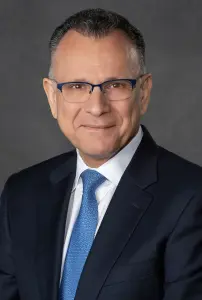 Dr. Fotis Sotiropoulos is the Executive Vice President and Provost of The Pennsylvania State University. Reporting directly to President Neeli Bendapudi, Dr. Sotiropoulos serves as Penn State’s chief academic officer, overseeing all of the academic units across colleges, schools, and the University’s twenty-four campuses and online Penn State World Campus, as well as the major academic support units.
Dr. Fotis Sotiropoulos is the Executive Vice President and Provost of The Pennsylvania State University. Reporting directly to President Neeli Bendapudi, Dr. Sotiropoulos serves as Penn State’s chief academic officer, overseeing all of the academic units across colleges, schools, and the University’s twenty-four campuses and online Penn State World Campus, as well as the major academic support units.
Dr. Sotiropoulos leads the advancement of Penn State’s academic mission. Working closely with deans, chancellors, faculty, staff, and students across Penn State, Dr. Dr. Sotiropoulos helps to set and accomplish academic priorities, champions collaboration and innovation, and strives to create a teaching, learning, research, and work environment emblematic of inclusive excellence. Under his leadership, the Provost’s office works to exemplify its commitment to discovery, excellence, access, equity, and the land-grant mission that shapes the University’s enduring impact on the Commonwealth and beyond.
Patrick Wolfe - Purdue University
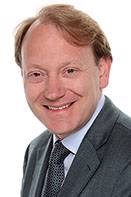
Patrick J. Wolfe became Provost and Executive Vice President for Academic Affairs and Diversity of Purdue University on January 1, 2023. He is a graduate of the University of Illinois with degrees in electrical engineering and music and holds a Ph.D. from the University of Cambridge.
Prior to his current role, Dr. Wolfe served Purdue University as the Frederick L. Hovde Dean of the College of Science and the Miller Family Professor of Statistics and Computer Science with faculty appointments in electrical and computer engineering. Previously, Dr. Wolfe taught at the University of Cambridge and Harvard University. He joined the faculty of University College London in 2012, where he became the founding executive director of its Big Data Institute.
Provost Wolfe specializes in the mathematical foundations of data science.
He is currently a trustee and non-executive director of the Alan Turing Institute, the United Kingdom’s national institute for data science and artificial intelligence. He has received research awards from the Royal Society, the Acoustical Society of America, and the Institute of Electrical and Electronics Engineers (IEEE). He was named the inaugural IEEE Distinguished Lecturer in Data Science.
A past recipient of the Presidential Early Career Award for Scientists and Engineers from the White House while at Harvard, Provost Wolfe provides expert advice on applications of data science to a range of national and international entities and organizations.
Francine Conway - Rutgers University-New Brunswick

Francine Conway, PhD is the chancellor of Rutgers–New Brunswick, the nation's 15th-ranked public university (U.S. News and World Report) and a member of the Big Ten Academic Alliance with more than 20 programs and schools in the nation’s top 20; a more than $300 million research portfolio across STEM, the humanities, and the arts; and a proud culture of inclusion among 40,000 students and 10,000 faculty and staff.
She assumed the title of chancellor on July 1, 2023, after serving as chancellor-provost since July 2021 and previously as provost. She is also a Distinguished Professor in the Graduate School of Applied and Professional Psychology, where she served as dean from 2016 to 2020, and is an internationally recognized clinical psychologist.
Throughout her career, Conway has made significant contributions to the field of clinical psychology, having treated children in hospitals and private practice for more than two decades, and through the Cultivating Compassion Project, a mentalization-based psychotherapy treatment for children with ADHD and their families.
She has served as a past president of the National Council of Schools and Programs of Professional Psychology and as an editor for prestigious journals in her field.
Conway completed her education at Cornell University, Columbia University, and the Gordon F. Derner Institute for Advanced Psychological Studies at Adelphi University, where she later joined the faculty for 13 years.
Darnell Hunt - University of California Los Angeles
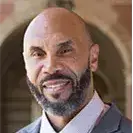
Darnell Hunt has been appointed the next Executive Vice Chancellor and Provost of the University of California Los Angeles. He earned his A.B. in journalism at the University of Southern California, his M.B.A. at Georgetown University, and his master of arts and doctorate in sociology at UCLA.
Dr. Hunt, who will begin in his new role on September 1, 2023, has been a leading figure on campus for more than two decades. After beginning his academic career on the sociology faculty at USC, he joined UCLA in 2001 as a professor of sociology and director of the Ralph J. Bunche Center for African American Studies. He led the Bunche Center from 2001 to 2017, and additionally served as chair of the sociology department from 2015 to 2017, before being named dean of the division of social sciences in the UCLA College.
He has written extensively about issues related to race, media and culture, including four books and numerous articles for academic journals and news outlets. While his research expertise is wide ranging, he has developed a particular focus on issues of access and diversity in the entertainment industry. Since 2014, he has been the lead author of UCLA’s influential Hollywood Diversity Report, providing comprehensive analyses of the employment of women and people of color in front of and behind the camera in film and television.
A sought-after commentator in news media on questions of media and race, he has also served on panel discussions sponsored by the Federal Communications Commission, the United Nations, the Congressional Black Caucus, numerous colleges and universities and other organizations. The findings of his research studies have been reported in thousands of print, radio, broadcast and online media outlets throughout the United States and abroad. In 2010, he was listed among Ebony magazine’s “Power 150 Academia” for his community-engaged scholarship.
Hunt is a member of the American Sociological Association, the Association of Black Sociologists and the Council of Colleges of Arts and Sciences. He has served as a member of the Los Angeles County Commission on Human Relations Academic Advisory Board and as a staff researcher for the U.S. Commission on Civil Rights’ hearings on the 1992 Los Angeles civil disturbances.
He currently serves as a member of the Chancellor’s Council on the Arts, the campus IT steering committee and the Faculty Forward Initiative task force at UCLA, and is also a member of the UC Press board of directors. In addition, he has served on numerous campus and UC committees including the committee on diversity and equal opportunity, the committee on undergraduate admissions and relations with schools, the classroom advisory committee, the civic engagement task force, and the UC Board of Admissions and Relations with Schools, and was the recipient of the UCLA Academic Senate’s Diversity, Equity and Inclusion Award in 2011.
Andrew T. Guzman - University of Southern California
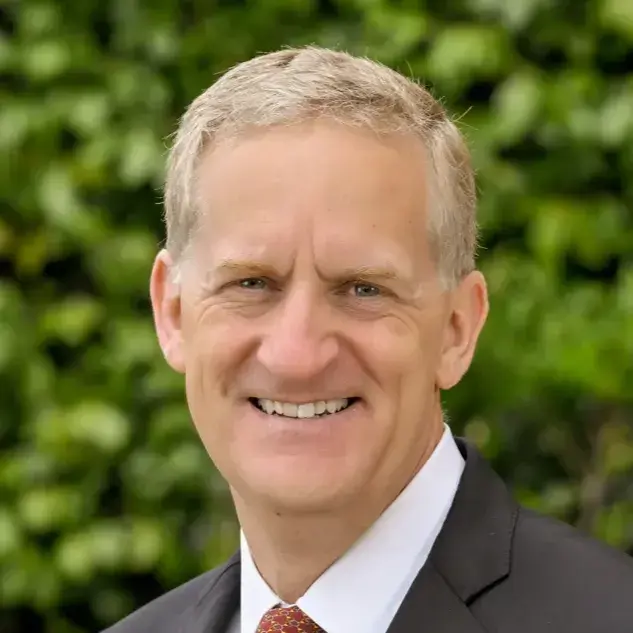
Andrew T. Guzman is USC’s provost and senior vice president for academic affairs. He oversees the overall academic enterprise of the university, including 18 of the university’s schools and academic units, USC Museums, and the divisions of student life, libraries, student religious and spiritual life, and enrollment services. He proudly holds the distinction of being USC’s first Latinx provost.
Provost Guzman joined USC in 2015 where he served as the dean at the USC Gould School of Law (2015-2023) and the interim dean of USC Libraries (2022-2023). He holds the Shelly and Ofer Nemirovsky Provost’s Chair and is a Professor of Law and Political Science.
A noted expert in international law and economics, Guzman has written extensively on international trade, international regulatory matters, foreign direct investment, and public international law. His work has addressed international tribunals, soft law, the safety of imported products and climate change. In addition, his interdisciplinary research examines problems across the range of public and private international law. He is the author of Overheated: The Human Cost of Climate Change, How International Law Works and International Trade Law, and the upcoming Goldilocks Governance: Understanding International Soft Law.
Prior to joining USC, Guzman was a professor of law and associate dean at UC Berkeley, where he directed the International and Executive Legal Education Program. He has also taught at as a visiting professor at numerous law schools in the U.S. and across the globe, including Harvard, the University of Chicago, the University of Virginia, Vanderbilt, the University of Hamburg, and the National University Law School in Bangalore, India.
Guzman earned his JD and PhD in Economics from Harvard University, where he was the Books & Commentaries Editor for the Harvard Law Review.
Tricia R. Serio - University of Washington
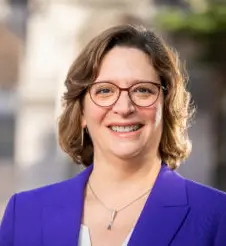 Tricia R. Serio joined the University of Washington as provost and executive vice president for academic affairs in 2023. A biochemist, Dr. Serio also holds a faculty appointment in the UW School of Medicine’s Department of Biochemistry.
Tricia R. Serio joined the University of Washington as provost and executive vice president for academic affairs in 2023. A biochemist, Dr. Serio also holds a faculty appointment in the UW School of Medicine’s Department of Biochemistry.
As the UW’s academic and budget officer, Dr. Serio is focusing her leadership on core areas to advance the University’s academic mission.
Dr. Serio (she/her pronouns) came to the UW from the University of Massachusetts Amherst, where she was provost and senior vice chancellor for academic affairs. A professor of biochemistry and molecular biology, Dr. Serio previously served at UMass Amherst as associate chancellor for strategic academic planning and dean of the College of Natural Sciences. She has also held research and professorial positions at the University of Arizona, Brown University and Yale University.
At UMass Amherst, Dr. Serio launched and led initiatives to increase diversity, equity, inclusion and belonging for faculty, staff and students, which included equity action plans for classroom belonging and faculty workload and a staff advisory council. She also established initiatives to promote faculty scholarship and creative activity that focused on sustainability, healthy aging, society and technology, inclusive excellence, data science and mid-career research support.
A first-generation college graduate, Dr. Serio earned her bachelor’s degree in molecular biology at Lehigh University and completed her master’s degree and Ph.D. in molecular biophysics and biochemistry at Yale.
Dr. Serio’s research centers on prion proteins, which are associated with infectious neurodegenerative disease in mammals (e.g., mad cow disease and Creuzfeldt-Jakob Disease). These diseases arise when prion proteins change their shape, and a similar process underlies non-infectious neurodegenerative diseases such as Alzheimer’s and Parkinson’s. An unusual event for proteins, Dr. Serio’s work seeks to understand how these changes in shape are triggered with the goal of blocking or reversing them. Her research uses baker’s yeast as a non-infectious model for experiments at the molecular, cellular, and biochemical levels, and she has a long-standing collaboration with Suzanne Sindi, an applied mathematician at UC Merced, to develop quantitative and predictive models for these transitions.
Dr. Serio has earned numerous recognitions for her research, including being named a Howard Hughes Medical Institute Predoctoral Fellow, a Damon Runyon-Walter Winchell Cancer Research Postdoctoral Fellow, and a Pew Scholar in the Biomedical Sciences. She also received the Howard Temin Award from the National Cancer Institute and the Mid-Career Award for Research Excellence from the American Society of Cell Biology, and she is an elected Fellow of the American Association for the Advancement of Science.
John Zumbrunnen - University of Wisconsin-Madison
 John Zumbrunnen began serving as UW-Madison’s interim provost and vice chancellor for academic affairs in June of 2025, succeeding Charles Lee Isbell, Jr., who served as provost from 2023-2025.
John Zumbrunnen began serving as UW-Madison’s interim provost and vice chancellor for academic affairs in June of 2025, succeeding Charles Lee Isbell, Jr., who served as provost from 2023-2025.
Interim Provost Zumbrunnen, professor of political science, studies the history of political thought, democratic theory, and American political thought. Zumbrunnen is a past recipient of the Chancellor’s Distinguished Teaching Award, the Phi Beta Kappa Excellence in Teaching Award, and the Alliant Energy Underkofler Excellence in Teaching Award. Alongside his administrative work, he continues to lead study abroad programs, most recently in Singapore, and soon, in Ecuador. Prior to taking on the role of interim provost, Zumbrunnen was vice provost for teaching and learning, faculty director of Chadbourne Residential College, an educational innovation senior fellow, and chair of the Department of Political Science.
Katherine Baicker - University of Chicago (Affiliate)
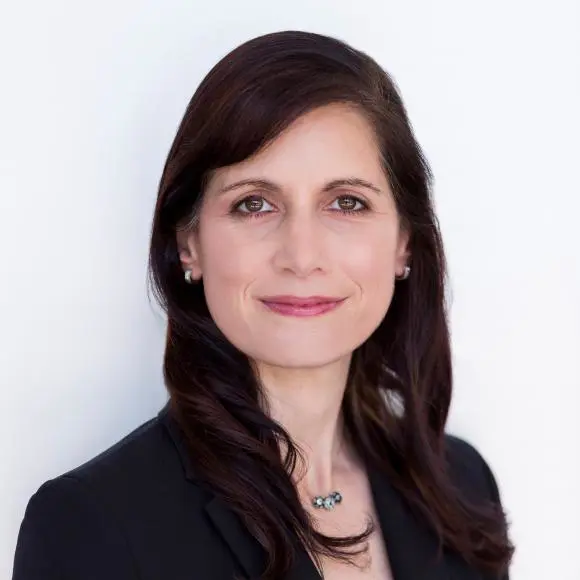 Katherine Baicker was named Provost of the University of Chicago in March 2023. She earned her B.A. in economics from Yale and her Ph.D. in economics from Harvard.
Katherine Baicker was named Provost of the University of Chicago in March 2023. She earned her B.A. in economics from Yale and her Ph.D. in economics from Harvard.
A leading scholar in the economic analysis of health care policy, she is the Emmett Dedmon Professor at the University of Chicago Harris School of Public Policy, where she served as Dean for five years prior to being appointed Provost.
Before coming to the University of Chicago, Dr. Baicker was the C. Boyden Gray Professor of Health Economics in the Department of Health Policy and Management at the Harvard T.H. Chan School of Public Health. She is a research associate at the National Bureau of Economic Research. She is a director of Eli Lilly and a trustee of the Mayo Clinic, NORC, the Chicago Council on Global Affairs, and the Urban Institute. Baicker is an elected member of the National Academy of Medicine, the National Academy of Social Insurance, the Council on Foreign Relations, and the American Academy of Arts and Sciences.
Baicker’s research focuses on the effectiveness of public and private health insurance, including the effect of reforms on the distribution and quality of care. Her large-scale research projects include the Oregon Health Insurance Experiment, a randomized evaluation of the effects of Medicaid coverage. Her research has been published in journals such as the New England Journal of Medicine, Science, Health Affairs, JAMA, and the Quarterly Journal of Economics.
She serves on the Congressional Budget Office’s Panel of Health Advisers and the Advisory Board of the National Institute for Health Care Management. She has served as Chair of the Massachusetts Group Insurance Commission; Chair of the Board of Directors of Academy Health; and Commissioner on the Medicare Payment Advisory Commission. From 2005-2007, she served as a Senate-confirmed Member of the President’s Council of Economic Advisers, where she played a leading role in the development of health policy.
